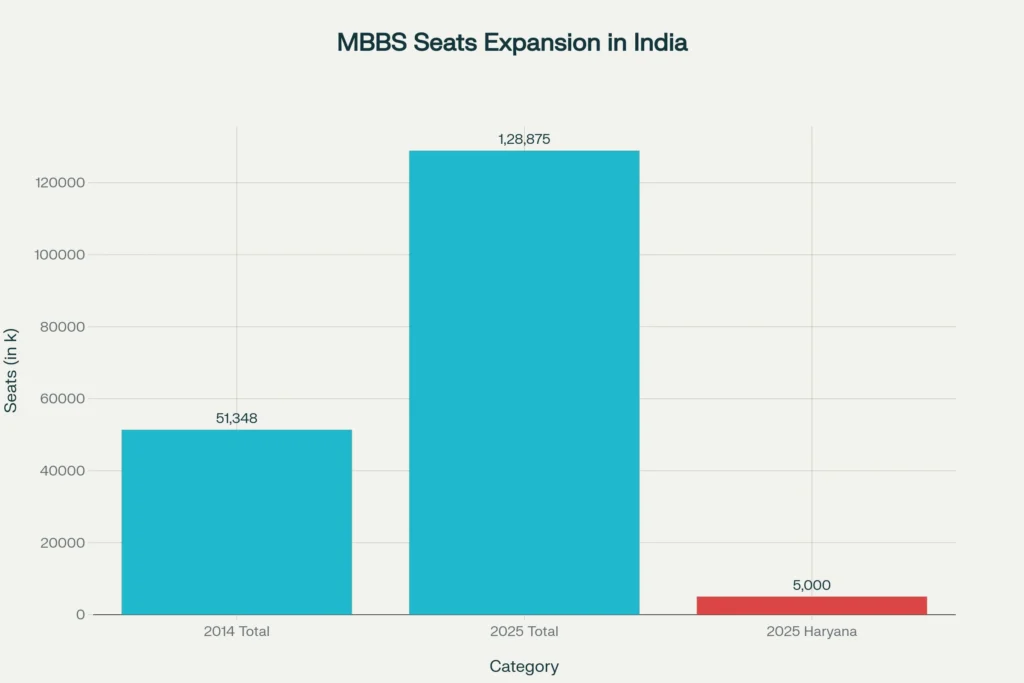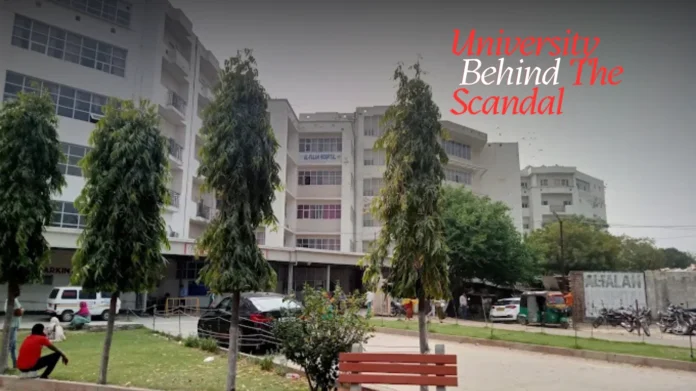Key Highlights
- Al Falah University Medical Students Caught in Terror Probe Fallout face uncertainty as 150 MBBS seats filled despite terror investigation linked to Red Fort blast.
- Several faculty and doctors arrested, Indian Medical Register cleansed of accused; NMC awaits state and Union ministry inputs on institutional fate.
- Students voice deep anxieties about impactful career risks; parents worry about disrupted dreams and restricted transfer options amid regulatory limbo.
Opening overview: Al Falah University Crisis sets medical students’ futures on edge
The Al Falah University scenario has turned once-promising academic pathways into fraught territory for hundreds. The university at the centre of serious terror allegations linked to the Red Fort blast continues to operate its medical program, leaving students anxious about recognition, accreditation, and professional futures. This crisis exposes broader vulnerabilities in India’s expanding medical education landscape, where institutional governance intersects with national security risks.
Despite the looming crisis, all 150 MBBS seats for the 2025-26 session are reportedly filled, underscoring desperate demand amid limited affordable options. The stark choice facing families — between risking career derailment or losing years of study. Regulatory bodies including the National Medical Commission (NMC), Association of Indian Universities, and NAAC face intense pressure balancing enforcement with protecting innocent students.
The Sudden Descent: How the Al Falah University Crisis Transformed a Premier Medical School
- Once a respected institution, Al Falah University’s reputation collapsed overnight amid terror-related arrests linked to the Red Fort blast.
- Key faculty involved include Dr. Umar un Nabi and Dr. Muzammil Shakil; allegations of criminal proceeds target founder Jawed Ahmed Siddiqui.
Al Falah University Medical Students Caught in Terror Probe Fallout reflects volatile shifts of fortune. Celebrated for UGC approval and NAAC accreditation, the university was a beacon among private medical colleges in Faridabad. The revolution came with the November 2025 car blast, after which media labelled it an alleged terror hub — a shocking transformation for the community and its students. Despite Vice Chancellor Prof Bhupinder Kaur’s assertion that the institution held no deeper connection beyond faculty employment, skepticism remains widespread.
Student Anxieties and Parental Dilemmas Amid the Al Falah University Crisis
- Students fear loss of recognition endangering careers; parents struggle with few options for transfers and mid-session admissions.
- Over 600 students, many from vulnerable regions, plead for regulatory pathways to protect their futures without collective punishment.
The Al Falah University Medical Students Caught in Terror has created palpable fear among students who invested years and lakhs in their medical education. A postgraduate MBBS student captured the sentiment: if the university shuts down, their degrees might become worthless. Parents echo the torment of tough choices — lose a year if shifting colleges mid-course or risk their entire medical degree if recognition is withdrawn. This dilemma sparks urgent calls for migration plans rather than blanket cancellations. Students like final-year Arjun from Lucknow urge regulatory compassion while seeking accountability for those responsible.
Institutional Responses, Accreditation Issues, and Ongoing Operations Amid Crisis
- NAAC issued and later withdrew a show-cause notice after expiry of accreditation status was displayed due to website errors.
- The Association of Indian Universities revoked membership; NMC permanently removed four implicated doctors from medical register.
Despite the heavy cloud hanging over it, the Al Falah University Medical Students Caught in Terror plays out amid ongoing classes, though some faculty have left. The university apologised and corrected the expired NAAC accreditation issue but faces continued scrutiny. The regulatory clean-up intensified with the NMC barring implicated doctors from practice, asserting its zero-tolerance stance on security breaches while balancing student protection. The institution’s persistence in functioning illustrates the complex dynamics where education must continue even as legal inquiries unfold.
Broader Medical Education Impact and Policy Implications of the Al Falah University Crisis
- India’s medical seats have more than doubled since 2014; yet affordable options like Al Falah’s attract students despite reputational risks.
- The NMC awaits recommendations from Haryana government and Union departments before deciding the university’s fate, highlighting regulatory complexities.
The Al Falah University Medical Students are spotlights deeper challenges in India’s medical education sector. Nationally, MBBS seats increased from around 51,348 in 2014 to 1,28,875 in 2025, reflecting major expansion efforts. Haryana contributes actively to this scale, yet quality and governance perils persist. The university’s relatively low first-year fees, approximately ₹16.37 lakh compared to ₹25 lakh+ at similar private colleges, keep demand robust despite risks. Regulatory decisions on whether to continue recognition or implement a phased transfer system will set precedents for future crises, balancing national security and education rights.

Final perspective: Al Falah University Crisis demands balanced, transparent resolutions for students’ futures
The unfolding Al Falah University faces challenges officials to balance criminal accountability with protecting innocent students caught in institutional turmoil. Millions rely on medical education for social mobility, making disruptions painfully consequential. As investigations progress and regulatory bodies deliberate, transparent policies ensuring student migration, protection of academic credentials, and maintaining the integrity of medical education remain critical. How authorities navigate this crisis will shape trust in private medical colleges and regulatory frameworks for years to come.


